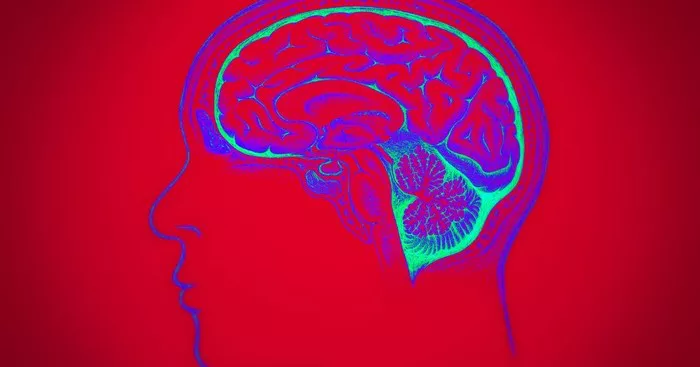Narcissistic Personality Disorder (NPD) is a complex mental health condition characterized by a pervasive pattern of grandiosity, a need for admiration, and a lack of empathy. Individuals with NPD often have an inflated sense of self-importance, a preoccupation with fantasies of success, power, or beauty, and a tendency to exploit others for personal gain. While diagnosing NPD requires a comprehensive assessment by a qualified mental health professional, there are several key symptoms and signs that may indicate the presence of the disorder. In this article, we’ll explore three common symptoms of Narcissistic Personality Disorder and discuss how they manifest in individuals with the condition.
Symptom 1: Grandiosity and Exaggerated Self-Importance
One of the hallmark symptoms of Narcissistic Personality Disorder is a pervasive pattern of grandiosity, which manifests as an exaggerated sense of self-importance and a belief in one’s superiority over others. Individuals with NPD often have an inflated sense of their own abilities, accomplishments, and achievements, and may exaggerate their talents or accomplishments to others.
Signs of Grandiosity:
Exaggerated Self-Importance: Individuals with NPD may believe that they are inherently superior to others and deserve special treatment or privileges.
Fantasies of Success and Power: People with NPD often harbor grandiose fantasies of unlimited success, power, or brilliance, and may fantasize about achieving fame, wealth, or influence.
Need for Admiration: Individuals with NPD crave constant admiration and validation from others, seeking praise and recognition to bolster their fragile self-esteem.
Example:
John, a CEO of a successful company, frequently boasts about his achievements and belittles his colleagues’ contributions. He insists on being the center of attention in meetings and becomes defensive or dismissive when others challenge his ideas or authority.
Symptom 2: Lack of Empathy and Exploitative Behavior
Another key symptom of Narcissistic Personality Disorder is a lack of empathy and an inability to recognize or understand the feelings and needs of others. Individuals with NPD may be indifferent or dismissive of others’ emotions, and may exploit or manipulate others to meet their own needs or desires.
Signs of Lack of Empathy:
Disregard for Others’ Feelings: People with NPD may disregard or minimize the feelings and needs of others, showing little empathy or compassion for their experiences.
Exploitative Behavior: Individuals with NPD may exploit or manipulate others for personal gain, using charm, manipulation, or coercion to achieve their goals.
Sense of Entitlement: People with NPD may believe that they are entitled to special treatment or privileges, and may exploit or take advantage of others to meet their own needs or desires.
Example:
Sarah, a coworker with NPD, frequently disregards the feelings of her colleagues and takes credit for their ideas or accomplishments. She manipulates others to do her work for her, using flattery or deception to get what she wants.
Symptom 3: Fragile Self-Esteem and Vulnerability to Criticism
Individuals with Narcissistic Personality Disorder often have a fragile sense of self-esteem that is easily threatened by criticism or perceived slights. Despite their outward display of confidence and arrogance, people with NPD may be highly sensitive to criticism or rejection and may react with anger, hostility, or defensiveness when their sense of superiority is challenged.
Signs of Fragile Self-Esteem:
Sensitivity to Criticism: Individuals with NPD may react with extreme anger or defensiveness to even mild criticism or feedback, viewing it as a personal attack on their character or abilities.
Shame and Humiliation: People with NPD may experience intense feelings of shame or humiliation when their flaws or shortcomings are exposed, leading them to lash out or withdraw from others.
Inflated Self-Image: Despite their vulnerabilities, individuals with NPD maintain an inflated self-image and may engage in defensive behaviors, such as denial or rationalization, to protect their fragile self-esteem.
Example:
David, a friend with NPD, becomes enraged when his partner suggests that he may have made a mistake at work. He accuses his partner of undermining his authority and refuses to consider any feedback or criticism, insisting that he is always right.
Conclusion: Seeking Help for Narcissistic Personality Disorder
While the symptoms described above are characteristic of Narcissistic Personality Disorder, diagnosing NPD requires a comprehensive evaluation by a qualified mental health professional. If you or someone you know exhibits symptoms of NPD that interfere with daily functioning or relationships, it’s essential to seek help from a therapist or psychiatrist who can provide an accurate diagnosis and develop an appropriate treatment plan.
Treatment for Narcissistic Personality Disorder typically involves psychotherapy, such as cognitive-behavioral therapy (CBT) or dialectical behavior therapy (DBT), which can help individuals develop healthier coping mechanisms, improve interpersonal skills, and gain insight into their behavior. In some cases, medication may also be prescribed to manage associated symptoms, such as depression or anxiety.
By recognizing the symptoms of Narcissistic Personality Disorder and seeking help from a qualified mental health professional, individuals with NPD can work towards building healthier relationships, improving self-esteem, and achieving greater emotional well-being.
[inline_related_posts title=”You Might Be Interested In” title_align=”left” style=”list” number=”6″ align=”none” ids=”7677,7625,7622″ by=”categories” orderby=”rand” order=”DESC” hide_thumb=”no” thumb_right=”no” views=”no” date=”yes” grid_columns=”2″ post_type=”” tax=””]

































